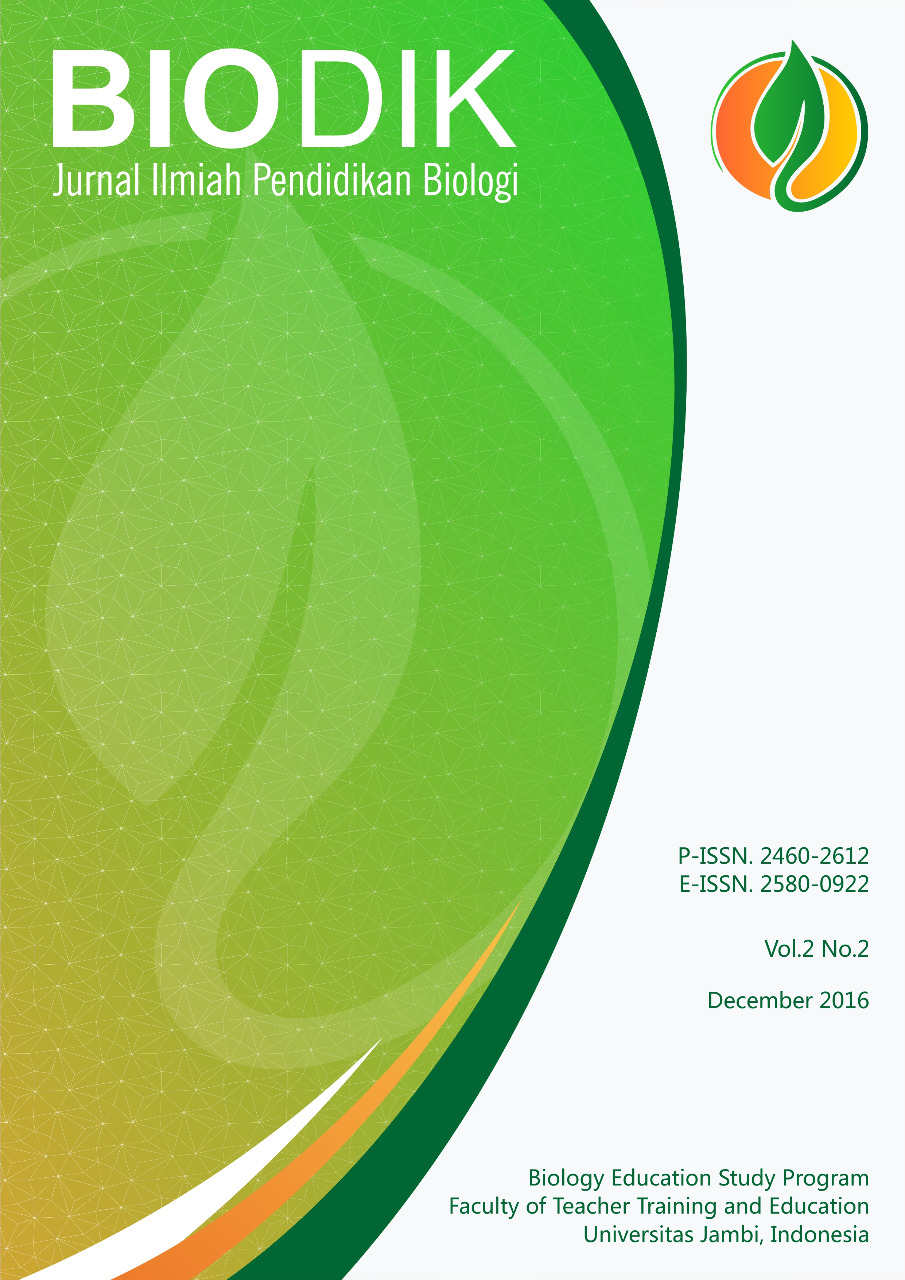INOVASI PEMBELAJARAN METODE KONVENSIONAL DIKOMBINASIKAN DENGAN STRATEGI PETA KONSEP (CONCEPT MAPPING) UNTUKMENINGKATKANHASIL BELAJAR BIOLOGI PADA SUB MATERI POKOK SISTEM INDERA MANUSIA DI KELAS XI IPA 3 SMA NEGERI 3 BINJAI TAHUN PEMBELAJARAN 2012/2013
DOI:
https://doi.org/10.22437/bio.v2iNo%202.4919Abstract
ABSTRAK. Penelitian tindakan kelas ini dilaksanakan untuk meningkatkan hasil belajar Biologi pada sub materi sistem indera pada manusia dengan inovasi pembelajaran melalui kombinasi metode konvensional dengan petakonsep (concept mapping) di kelasXI IPA 3 SMA Negeri 3 Binjai T.P 2012/2013.Pengamatan dilakukan pada 40 orang siswa. Indikator keberhasilan dalam penelitian ini meliputi: peningkatan hasil belajar siswa, ketuntasan belajar, dan hasil penilaian peta konsep. Instrumen yang digunakan adalah tes kognitif dan lembar penilaian peta konsep siswa. Data yang diperoleh, dianalisis secara kuantitatif. Hasil penelitian membuktikan bahwa inovasi pembelajaran metode konvensional dikombinasikan dengan strategi peta konsep dapat meningkatkan hasil belajar siswa.
Downloads
Downloads
Published
Versions
- 2018-04-24 (1)
- 2018-04-24 (1)
How to Cite
Issue
Section
License
Copyright Notice
Authors who publish with Biodik : Jurnal Ilmiah Pendidikan Biologi agree to the following terms:
- For all articles published in Biodik : Jurnal Ilmiah Pendidikan Biologi, copyright is retained by the authors and grant the journal right of first publication with the work simultaneously licensed under a Creative Commons Attribution-ShareAlike 4.0 International Licensethat allows others to share the work with an acknowledgment of the work's authorship and initial publication in this journal.
- Authors are able to enter into separate, additional contractual arrangements for the non-exclusive distribution of the journal's published version of the work (e.g., post it to an institutional repository or publish it in a book), with an acknowledgment of its initial publication in this journal.
- Authors are permitted and encouraged to post their work online (e.g., in institutional repositories or on their website) prior to and during the submission process, as it can lead to productive exchanges, as well as earlier and greater citation of published work (See The Effect of Open Access).

















